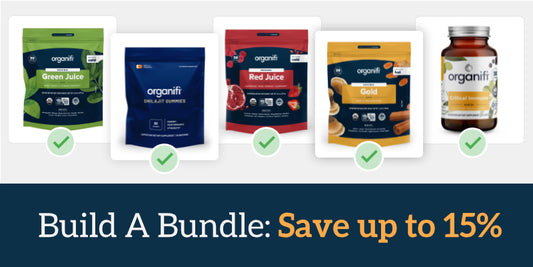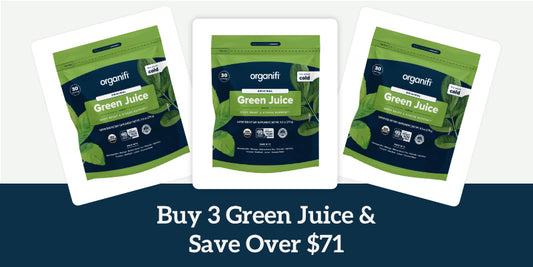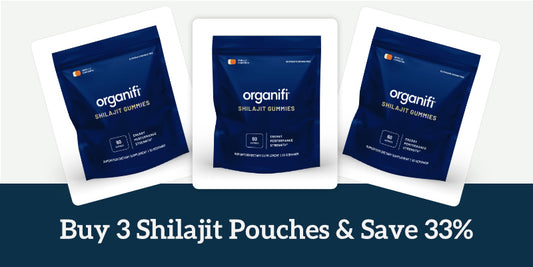Do you ever wonder what does the liver do?
Liver function, as with many other organs in our body, can be a bit of a mystery for most of us; we know it’s an important organ and that excess alcohol impairs its function, but we can’t really pinpoint exactly what it does for us.
The liver is a vital organ that filters blood and detoxifies the body.
Understanding liver function doesn’t have to be the subject of a dissertation (although it can be) but it is good to know what it does for you so you can make better and more informed choices when it comes to taking care of yourself.
The liver performs over 500 functions that keep you healthy (or not).
In this post, we’ll cover everything you need to know about liver function and how this magnificent organ can make or break your health, plus what to feed it to fuel its natural body detox functions and keep your liver young and healthy:
- What is The Liver
- Liver Function 101
- Liver Enzymes
- Signs of an Unhealthy Liver
- How to Boost Liver Function Naturally
What is The Liver? Liver Function 101
If you were shocked to find out that liver function spans 500+ processes, you’re not the only one! When we say that the liver is a critical organ, this is why:
Q. What is the Liver?
A. It’s a critical metabolic function and immune system organ that filters blood from the digestive tract, through the portal hepatic vein and the hepatic artery. It’s vital for survival and without a healthy functioning liver humans cannot survive.
Everything that we consume is processed by the liver: food, alcohol, medication, supplements, and toxins are filtered by the liver after being digested by the stomach and intestines.
Q. Where is your liver located?
A. The liver is in the upper right side of the abdominal cavity, right on top of the stomach, kidneys, and intestines. It is protected by the rib cage and sits beneath the diaphragm.
Q.What does the liver look like?
A.The liver is the second-largest organ in the body (only preceded by the skin), it’s shaped like a cone with two chambers, and it is a pinkish and brown color. It’s often compared to a football due to shape and size; it weighs about three (3) pounds. It has two main lobes comprised of lobules and ducts that form the “hepatic duct” which transports liver chemicals (such as bile) to their ultimate destination.
Q. What are the Essential Liver Functions?
A. As mentioned above, the liver performs more than 500 functions according to research. However, the most important, or essential liver functions are the following:
-
Filtering and Processing: the liver takes the substances in the blood and breaks them down into nutrients, fat, sugar, proteins, harmful toxins, etc. It creates bile to carry away waste, cholesterol to transport fat, urea to eliminate toxins, and bilirubin (a by-product of red blood cell breakdown.)
-
Detoxification: an important liver function (although they all are) is the detox process which happens in two phases (oxygenation and conjugation) where toxins are turned into water-soluble less harmful substances that can be eliminated by the body.
-
Energy Extraction: the liver takes excess glucose and turns it into glycogen for storage. Glycogen can later be turned into energy again. It helps regulate the amount of sugar in the blood.
-
Nutrient Storage: a lesser known liver function is its nutrient storage capacity, for example, the liver stores iron and processes hemoglobin to extract it. It has the ability to decide what needs storing, what needs to be eliminated, and what gets sent back into the bloodstream.
- Immune System Support: the liver helps the immune system removing bacteria from the bloodstream, assisting in blood filtration, and resisting infections by having active immune cells to distribute when necessary. It also regulates blood clotting with Vitamin K.
Liver Enzymes and How the Liver Works
Q. How does the Liver Work?
A.The liver receives dual blood supply from the hepatic portal vein and hepatic arteries, which is then filtered and processed by the lobules and ducts that compose the liver’s tissue. This blood makes it to the central vein of each of the two lobes of the liver.
Oxygenated blood is then processed by the hepatic portal system (this means blood doesn’t go through the heart as one set of capillaries drain into another, unlike most of the other systems) and enzymes are leveraged to filter the blood and send back to the heart.
The hepatic portal system connects the gastrointestinal tract with the capillaries in the liver, and nutrient-rich blood makes it through the system to be broken down into necessary substances or waste.
Q. What are Liver Enzymes? What does an Enzyme do?
A.Enzymes are types of protein that act as catalysts and help the liver break down toxic substances and make them safer to process. A chemical reaction (like metabolizing protein) takes place when chemical compounds interact with each other to make new ones. Sometimes they happen by themselves, and sometimes they need a catalyst to enable the reaction.
Liver enzymes allow the liver function to take place and produce the chemicals it needs to filter and process blood, regulate blood sugar, store vitamins, or detoxify the system. Enzymes are very important, and you can learn to recognize and fix enzyme deficiency.
Q.What is a Liver Enzyme and What do Liver Enzymes do?
A. There are many enzymes in the body and liver enzymes that participate in a myriad of processes for optimum liver function and liver detox, however, the main ones are:
- Alanine transaminase (ALT) liver enzymes that aid in protein breakdown.
- Aspartate transaminase (AST) acts as one of the liver enzymes, but may also be found in the heart, skeletal muscle, kidneys, brain, and bones. It catalyzes amino acids.
- Alkaline phosphatase (ALP) liver enzymes found in the linings of the biliary ducts of the liver that may also be present in the kidneys, bones, placenta, and intestines. It plays a significant role in lipid cell processing and transportation (fat.)
- Gamma-glutamyl transpeptidase (GGT) not exclusively a liver enzyme, it is a microsomal enzyme found in the biliary epithelial cells, kidneys, pancreas, hepatocytes in the liver, and intestines. It aids in the metabolization of Glutathione, an antioxidant in plants, animals, and fungi.
- Lactate dehydrogenase (LDH) enzyme found in almost all living cells that catalyze lactate acid into pyruvate acid, and back. Essentially it metabolizes acidic structures.
When you’re getting tested to very liver function and see if liver detox is happening as it should be, your doctor may also require you to check the following:
- Albumin: The liver produces two main proteins, albumin and globulin, the former is the main protein of blood plasma in humans. It binds water, bilirubin, thyroxine, pharmaceuticals, and Vitamin D.
- Bilirubin: neither a protein nor a liver enzyme, it’s a yellow compound that results from red blood cells processing. High levels of bilirubin may turn your skin and white of the eyes yellow.
- Serum Glucose: measures the liver’s capacity to produce glucose.
- Prothrombin time (PT): measures how long it takes for blood to clot. These are not a result of liver enzyme activity but are part of the overall liver function.
Signs of an Unhealthy Liver
As you can see the liver is a mighty organ with vital capabilities, but it is nowadays faced with more work than ever before:
- We eat more often than any other historical period (snacks anyone?)
- We have more contact with toxins than we did in the past (from cleaning supplies, makeup, alcohol consumption, and even plastic containers)
- We lead less healthy diets than ever in history (that’s why we’re returning to whole foods!)
Therefore, it is very possible that an overworked liver starts to malfunction or under-perform. Here are some signs of unhealthy liver function:
- Persistent weakness or chronic fatigue
- Low energy levels
- Sudden weight loss
- Jaundice (yellowing of the skin or eyes)
- Bloating in the abdominal area
- Nausea or vomiting
- Loss of appetite
- Acne, itchy skin, or unexplained skin rashes
- Dark urine or pale stool
- Leg or ankle swelling
- Abnormal bruising or bleeding
- Abdominal pain
Talk to Your Doctor
Some of the sneakiest liver function issues show up as fatigue, lack of energy, and weight fluctuations. If you have several of the above symptoms, it may be time to talk to your primary care physician about liver function and how you can support liver detox. You can easily monitor liver health through regular blood tests every six months.
How to Boost Liver Function Naturally
To maintain healthy liver function simply start by being more aware of what you consume: nourishing foods, plenty of water, reduce or eliminate alcohol and/or drugs, switch to glass containers, reduce toxin exposure - live more mindfully!
- Support liver functions regularly: learning how to detox your liver with nutrition.
- Drink plenty of water and try to add liquids that aid liver detox like lime infused water, green and black tea, and citrus based juices.
- Up your green superfood intake: dark leafy greens (aka cruciferous vegetables) such as broccoli and Brussels Sprouts, contain glucosinolate - a compound that helps the liver to produce enzymes needed in detox processes. We always recommend Green Juice.
- Exercise regularly: it boosts your metabolism, keeps excess fat under control, and reduces the number of compounds your liver needs to process.
- Watch out for Toxins and Medication: some medication may overtax the liver, look for side effects. Think about food containers, cleaning supplies, and beauty supplies.
Enjoy a healthy life, paying attention to your body and the signs of liver health.
We’re launching a liver detox and support supplement to make this even easier for you, but for now you can always look into our sunrise to sundown power packs to aid liver detox every day.





2 comments
I find your page very Educative. Thank you and keep it up.
thanks for the information